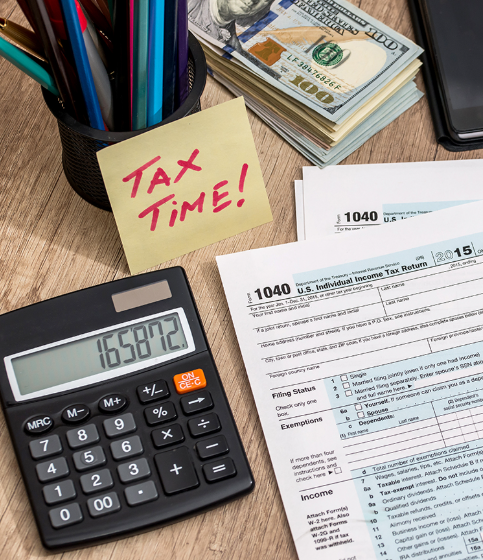Tax season doesn’t have to feel overwhelming—if you’re organized. Walking into your tax appointment (or logging into your tax software) with the right documents ensures accuracy, maximizes deductions, and speeds up the filing process. Here’s everything you need to have ready.
Essential Personal Information
First, gather basic details for yourself, your spouse (if filing jointly), and any dependents:
- Photo ID (driver’s license, passport, or state ID)
- Social Security numbers (or ITINs)
- Dates of birth for everyone on the return
- Bank account details for direct deposit (a voided check or routing/account numbers)
- Prior-year tax returns (helpful for reference)
Income Documentation
Your tax liability depends on all sources of income. Collect:
- W-2 forms from employers
- 1099 forms for freelance, gig work, or contract jobs (1099-NEC, 1099-K)
- Self-employment records (invoices, receipts, and expense logs)
- Unemployment benefits (1099-G)
- Retirement/pension income (1099-R, SSA-1099 for Social Security)
- Investment earnings or losses (brokerage statements, real estate sale docs)
- Rental property income/expenses
- Other income (alimony, scholarships, state tax refunds—1099-G)
Deductions & Credits
Don’t leave money on the table—these expenses could lower your tax bill:
- Retirement contributions (401(k), IRA, or HSA records)
- Education costs (tuition statements, student loan interest—1098-T)
- Childcare expenses (provider’s tax ID and payment records)
- Charitable donations (receipts for cash or non-cash gifts)
- Homeownership docs (mortgage interest, property tax bills)
- Medical expenses (bills exceeding 7.5% of your AGI)
- State/local tax payments (receipts for estimated or additional payments)
Special Considerations
- Stimulus payments or advance tax credits: Note any IRS letters (e.g., Letter 6475 for stimulus checks).
- Health insurance: Forms 1095-A/B/C if you purchased coverage through the Marketplace or had employer-provided insurance.
Pro Tips for a Smooth Process
- Organize by category: Use folders (digital or physical) for income, deductions, and personal info.
- Don’t estimate: Exact numbers prevent errors or audits.
- Ask questions: If unsure about a document, check with your accountant ahead of time.
Final Thoughts
With this checklist, you’ll avoid last-minute scrambles and ensure nothing gets overlooked. Whether you’re filing solo or working with a pro, preparation is the key to a stress-free tax season.
Need personalized advice? A tax professional can help identify additional savings tailored to your situation. Now, take a deep breath—you’ve got this!


